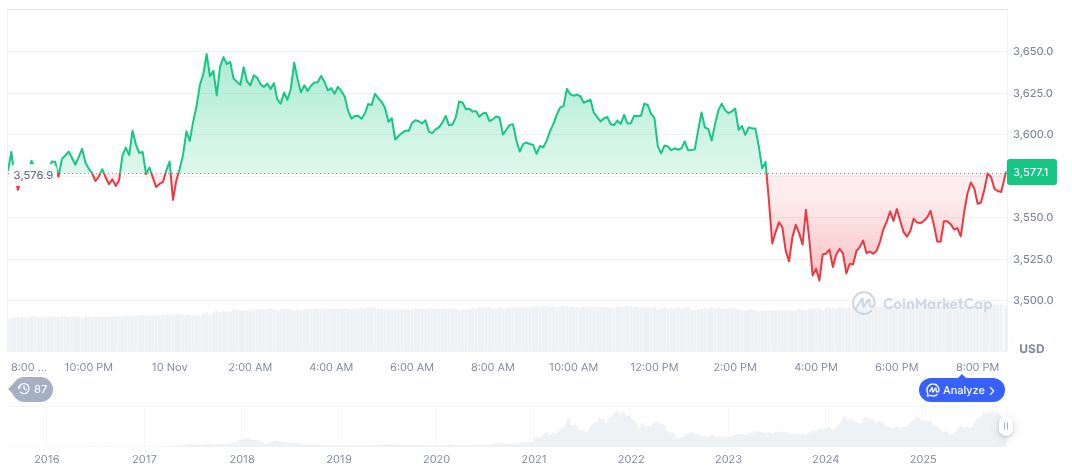- Brazil introduces new crypto regulations, affecting operations by 2026.
- Authorization and compliance required for service providers.
- Stablecoin transactions to follow foreign exchange rules.
The Central Bank of Brazil announced new regulations on November 11, 2023, requiring digital asset service providers to obtain authorizations and implement compliance systems, effective from February 2026.
These measures align Brazil’s digital asset sector with traditional finance standards, potentially raising operational costs for VASPs and affecting cryptocurrencies like ETH, BTC, and stablecoins.
Brazil’s $7 Million Capital Requirement for Crypto Companies
The Central Bank of Brazil outlined extensive new regulations for digital asset companies. Financial service providers are categorized as intermediaries, custodians, and brokers, each needing explicit authorization. Gilneu Vivan, Director of Regulation, emphasized the intent to balance innovation and security in the crypto space:
Stablecoin and international transaction rules are tightening, with operations subject to foreign exchange regulations. Unauthorized counterparty transactions will have a capped amount, affecting market dynamics. The new capital requirement for operators is set at $7 million.
The challenge was finding a way to unite innovation and security. The crypto market depends heavily on technology and has very important obligations related to anti-money laundering. All of this requires guarantees that it will be well executed.
Industry leaders and government officials have remained relatively silent on public forums following the announcement. No major reactions from Brazilian blockchain projects have surfaced in community channels.
Brazil Adopts EU-Inspired Framework Amid Crypto Market Decline
Did you know? Brazil’s regulatory framework reflects lessons from the EU’s MiCA, underscoring a global shift towards tighter crypto oversight, echoing past regulatory patterns that often led to decreased market liquidity and increased compliance costs.
Ethereum (ETH), priced at $3,499.29, reflects a 7-day decline of 1.58% with a market cap nearing $422.35 billion. Notable reductions over the last 90 days show a drop of 24.67%, according to CoinMarketCap’s latest updates.
From Coincu’s analysis, Brazil’s regulatory push may spur market consolidation among service providers unable to meet new standards, potentially influencing technological compliance trends in Latin America’s burgeoning digital economy.
In broader market trends, notable movements can be seen where Stablecoin and international transaction rules are highlighted as crucial regulatory elements impacting global crypto transactions.
Furthermore, the shift in Brazil’s policy reminiscent of certain aspects from EU regulations underscores a more globalized approach to crypto oversight, similar to steps taken by Western Union in its stablecoin remittance pilot illustrating real-world applications and impacts of firm regulatory measures.
| DISCLAIMER: The information on this website is provided as general market commentary and does not constitute investment advice. We encourage you to do your own research before investing. |
Source: https://coincu.com/news/brazil-central-bank-crypto-regulations/
